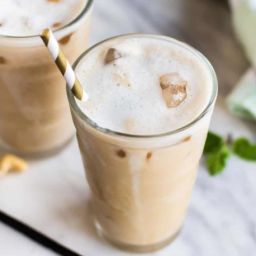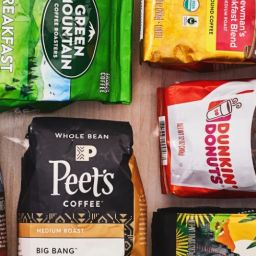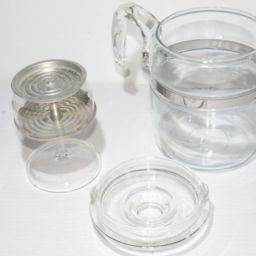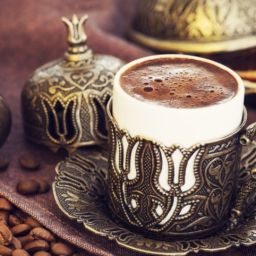
Fasting isn’t just a dietary choice; it’s a lifestyle embraced by many seeking various health benefits, from improved metabolic health to better brain function. The intrigue? It’s all about when you eat, not just what you eat. Now, throw coffee into the mix—a morning ritual for millions—and you’ve got a hot topic. Does your morning brew align with your fasting goals, or does it throw a wrench in the works? This debate gets even more flavorful when we discuss French Vanilla Black Coffee.
Does French Vanilla Black Coffee Break a Fast?
So, here’s the scoop: if you’re sipping on French Vanilla Black Coffee, you’re likely in the clear, provided it’s just the beans flavored, with no added sugars or sweet stuff. But, if your brew is dolled up with syrups or added sugars, that’s a different story. The bottom line? It’s all about what’s in your cup.
Key Takeaways
- Black Coffee Basics: A cup of plain black coffee is generally considered fasting-friendly, with minimal calories that don’t disrupt the fasting state.
- Flavor Facts: Flavored beans, like French Vanilla, usually don’t break a fast, assuming no extra sugars or calories are involved.
- Additive Awareness: Watch out for additives! Syrups or sugars, even in small amounts, can interrupt your fast.
- Personalized Approach: Fasting isn’t one-size-fits-all. Your body’s response to coffee during fasting can vary, so listening to your body is key.
- Expert Opinions: Health gurus and scientific studies offer insights, but they also highlight that the coffee and fasting combo is a nuanced topic.
- Mindful Choices: Choosing pure, quality coffee and being mindful of what goes into it can help you align your coffee habit with your fasting goals.
The Science of Coffee and Fasting
When you’re on a fasting journey, every calorie counts, and every sip matters. So, what’s the deal with black coffee, especially when it’s flavored like French Vanilla? Let’s break it down.
Black Coffee and Fasting: Generally, black coffee is a go-to for fasters. Why? It’s low in calories, typically less than 5 per cup, making it a safe bet for most fasting protocols. But it’s not just about the calories; it’s also about how your body responds to coffee during the fast.
Autophagy and Coffee: Autophagy is your body’s way of cleaning house, getting rid of the old cell parts to make room for the new. Some studies suggest that coffee might boost this process. How? The compounds in coffee, like antioxidants, could help signal your body to kickstart autophagy. But remember, we’re talking black coffee here—no sugars, no creams.
Coffee and Ketosis: If you’re fasting to hit ketosis, where your body burns fat for fuel, coffee might be your ally. Black coffee, being low in calories, doesn’t throw off your carb count. But, there’s a twist. The type of coffee matters. Flavored coffees, if they’re just infused beans with no added sugars, are likely okay. But if there’s hidden sugar or carbs, it could interrupt ketosis.
Quality Matters: Not all coffees are created equal. The quality of the bean, the flavoring process, and what you add to it can all influence how your coffee interacts with your fast. Choose high-quality, naturally flavored beans like French Vanilla without added sugars to keep your fast on track.
Listening to Your Body: Everyone’s body reacts differently to coffee during fasting. Some might find it suppresses appetite, while others might notice a spike in cravings. The key is to tune in to how your body feels and adjust accordingly.
Analysis of Different Types of Coffee and Their Effects on Fasting
When navigating the world of coffee during fasting, it’s not just about black or white—there’s a whole spectrum to consider. Let’s delve into how different brews stack up against your fasting goals.
- Plain Black Coffee: The fasting purist’s choice, plain black coffee is virtually calorie-free, making it a safe bet for maintaining a fasted state. It’s the minimalist’s dream—simple, straightforward, and effective at keeping you in the fasting lane without adding calories.
- Flavored Coffee Beans: Flavored beans, like French Vanilla, get their taste from natural or artificial flavorings added during roasting. If it’s just the beans that are flavored and there are no added sugars or calories, they’re typically fasting-friendly. But beware of added sugars or artificial sweeteners that can sneak into lesser-quality flavored coffees.
- Espresso: The strong, concentrated cousin of regular coffee, espresso packs a punch with a minimal calorie count. Like black coffee, a shot of espresso is generally considered fasting-compatible, provided you’re not dressing it up with sugar or milk.
- Coffee with Milk or Cream: Adding milk, cream, or non-dairy alternatives introduces calories and potentially carbs, which can interrupt fasting. Even small amounts can trigger a metabolic response, so if you’re strict about your fast, it’s best to steer clear.
- Bulletproof Coffee: Popular in the keto community, this brew combines coffee with butter and MCT oil. While it’s a no-go for traditional fasting due to its high calorie and fat content, some fasting variants might allow it, especially if your focus is on ketosis rather than calorie restriction.
- Sweetened and Specialty Coffees: Lattes, cappuccinos, and other specialty coffees often come with added sugars, syrups, or flavorings that can break a fast. These are typically best saved for your eating windows.
French Vanilla Black Coffee in Detail
French Vanilla Black Coffee isn’t just your regular cup of joe with a twist of flavor. It’s a unique blend that combines the rich, bold taste of black coffee with the sweet, creamy essence of vanilla. But what’s really in it, and how does it stack up against plain black coffee?
Unlike regular black coffee, which is straight-up coffee without any additives, French Vanilla flavor is typically achieved through the addition of natural or artificial flavorings to the coffee beans before brewing. The key here is that these flavorings are added during the roasting process, not after brewing, which means no extra sugars or calories—just the essence of vanilla.
If you’re wondering whether this flavored brew is fasting-friendly, the answer leans towards yes, as long as it’s just the flavored beans without added sugars or syrups. This makes French Vanilla Black Coffee a more palatable option for those who find plain black coffee too bitter but still want to stick to their fasting regimen.
While regular black coffee offers a straightforward, robust coffee flavor, French Vanilla Black Coffee provides a smoother, slightly sweet taste experience without the calorie count of added sweeteners or creamers. It’s a way to spice up your coffee routine without breaking your fast.
Expert Opinions on Coffee and Fasting
When it comes to coffee and fasting, opinions vary among health experts. Dr. Jason Fung, a prominent voice in the intermittent fasting community, supports the consumption of plain black coffee during fasting periods, highlighting its potential to enhance the benefits of fasting without breaking it.
Dr. Rhonda Patrick adds a layer of complexity, suggesting that even black coffee might trigger some metabolic activity, albeit minor compared to consuming food or sugary drinks. Her stance suggests a more nuanced approach, considering individual responses to coffee during fasting.
Other experts, like those from the Coffee Guide 101, emphasize moderation and the importance of listening to your body. They acknowledge that while coffee, particularly black or naturally flavored like French Vanilla, is generally acceptable during fasting, individual experiences can vary.
FAQs
Does the addition of flavors like vanilla extract to black coffee affect fasting?
Flavoring your coffee, even with something as seemingly innocent as vanilla extract, can be a gray area in fasting. While pure vanilla extract might have minimal calories, it’s the quantity that counts. A drop or two is unlikely to disrupt your fast significantly, but it’s all about moderation. If you’re strict about your fasting, it’s best to keep your coffee as plain as possible to avoid any potential impact on the fasting state.
Can I add sweeteners or milk to my coffee without breaking the fast?
When it comes to fasting, purity is key. Adding sweeteners or milk introduces additional calories and can stimulate insulin response, potentially breaking your fast. If maintaining a strict fast is your goal, it’s wise to avoid these additions. For those following a more lenient fasting protocol, minimal amounts might be acceptable, but they could still impact the overall effectiveness of the fast.
How do different fasting protocols view coffee consumption?
Different fasting protocols offer varying guidance on coffee. While some strict fasting methods advocate for only water, others allow black coffee and even tea. The key is to understand the guidelines of your chosen fasting method and how it interprets the consumption of beverages like coffee. Generally, the more additives you include in your coffee, the more likely it is to be considered breaking the fast.
Final Thoughts
In the world of fasting, coffee, especially in its purest black form, often gets the green light, but nuances matter. Whether it’s a simple black brew or a flavored variety like French Vanilla Black Coffee, the key is to avoid extras that introduce calories. Experts like Dr. Jason Fung and Dr. Rhonda Patrick suggest that while coffee is generally acceptable, individual responses can vary, making it crucial to listen to your body.
For those considering flavored coffees or additions like milk or sweeteners, the advice leans towards caution. These can potentially affect the fasting state, depending on your fasting protocol’s strictness.









